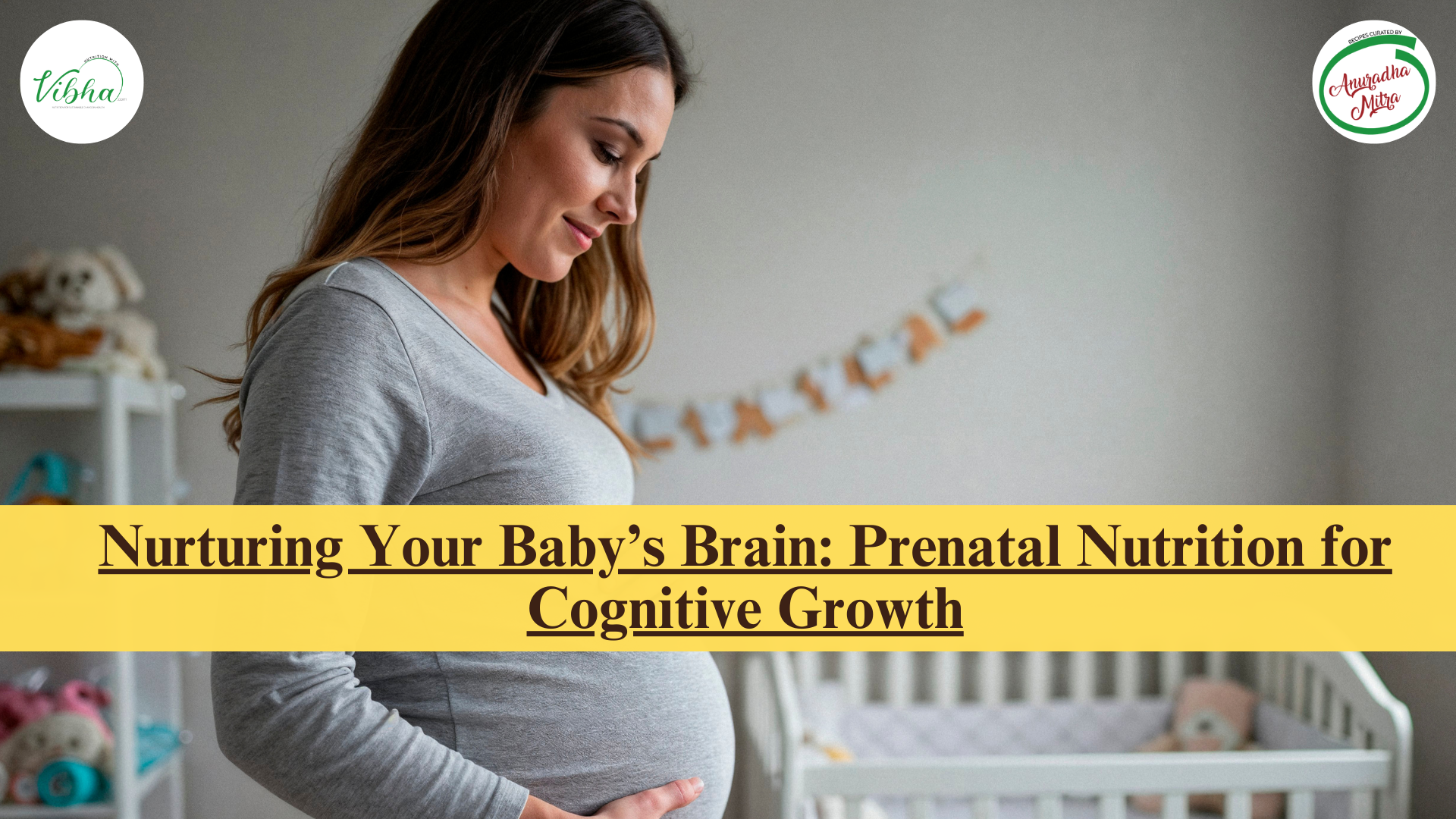Nurturing Your Baby’s Brain: Prenatal Nutrition for Cognitive Growth

[um_loggedout show_lock="no"]
Securing optimal foetal development requires the potential mother to be in a state of physical and emotional health before and during her pregnancy [1]. For a mother to adequately support the development of a foetus, she must be able to provide it with sources of sufficient energy and a suitable mix of nutrients. Her ability to meet the needs for foetal brain development is not related simply to her current or immediate past dietary intake, but is dependent on her general state of health, in particular, her emotional and physical health status, and her health behaviours before and during pregnancy, that is smoking, alcohol, and drug use [2].
A healthy and varied diet is important at all times in life, but particularly so during pregnancy. The maternal diet must provide sufficient energy and nutrients to meet the mother’s usual requirements, as well as the needs of the growing foetus, and enable the mother to lay down stores of nutrients required for foetal brain development as well as for lactation [3]. The dietary recommendations for pregnant women are very similar to those for other adults, but with a few notable exceptions. The primary recommendation is to follow a healthy, balanced diet. In particular, pregnant women should aim to consume a variety of iron- and folate-rich foods, and a daily supplement of vitamin D is recommended throughout pregnancy [1].
Arguably brain is one of the most important organs in the body; the brain requires a high level of nutrition to function optimally. In fact, glucose utilization is 60% of the total in the body [3]. During development, proper maternal and infant nutrition is needed to ensure that the neural substrates are laid down with integrity. Maternal nutrition is integral to foetal and, if breastfeeding, infant brain development [1].
PROTEINS
During pregnancy, the placenta needs the right amount of protein in order to supply your baby with the nutrients it needs to grow and develop. Your growing baby also needs protein to support the production and maintenance of the cells in their body, ensuring that they have a strong and healthy foundation to build upon throughout infancy, childhood, and beyond.
During the first trimester, your protein requirements will only increase by a small amount. As you reach your second trimester, your protein needs will increase in order to support various changes your body goes through to help your baby’s growth. The recommended protein for adults is 0.75 g per kg of body weight per day, plus an additional 6g per day for pregnant women [3].
Amino acids, often referred to as the building blocks of proteins, are compounds that play many critical roles in your body. You need them for vital processes such as building proteins, hormones, and neurotransmitters. Amino acids are concentrated in protein-rich foods such as meat, fish, and soybeans. Amino acids such as tyrosine, tryptophan, and phenylalanine are precursors to neurotransmitters dopamine and serotonin, which influence mood, alertness, and concentration [5].
DIETARY AND CALORIC RECOMMENDATIONS
To maintain a healthy pregnancy, approximately 300 extra calories are needed each day. These calories should come from a balanced diet of protein, fruits, vegetables and whole grains. Sweets and fats should be kept to a minimum. A healthy, well-balanced diet can also help to reduce some pregnancy symptoms such as nausea and constipation [3].
Fluid intake is also an important part of pregnancy nutrition. You can take in enough fluids by drinking several glasses of water each day, in addition to the fluids in juices and soups. Restrict your intake in caffeine and artificial sweeteners. Avoid all forms of alcohol [1].
FATS: THE GOOD AND THE BAD
While it’s true that some fats carry health risks, others provide an important source of energy and help the body to absorb certain nutrients. They can also provide essential fatty acids that your body can’t make, which are vital for your baby’s development throughout pregnancy [3].
Omega-3 fats are particularly beneficial, playing an important role in your baby’s brain, visual and nervous system development [5]. Some types of omega-3 fats cannot be made by the body and are therefore essential in small amounts in the diet [5].
CARBOHYDRATES
Carbohydrate foods provide essential fuel for both the mother and the baby during pregnancy. They are broken down into simple sugars like glucose, which easily move through the placenta and are required for the development, growth, and metabolism of maternal and foetal tissues. The glucose provided by carbohydrates is the optimal fuel for the maintenance of maternal and foetal brain function [1].
MICRONUTRIENTS REQUIRED DURING PREGNANCY
- EPA and DHA: Essential for brain development, memory, learning, and emotions [5].
- Vitamin C: Mild deficiencies could stunt the foetal hippocampus by 10–15% [5].
- Vitamin B6: Deficits can interfere with the development of the neocortex, putamen, cerebellum, and medulla oblongata [5].
- Folic Acid (B9): Helps prevent spinal cord defects and supports brain development [3].
- Vitamin B12: Linked with offspring neurocognitive performance at ages 2 and 9 [3].
- Vitamin D: Deficiency linked with increased risk of neurodevelopmental disorders [5].


